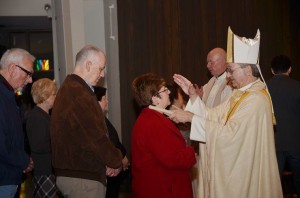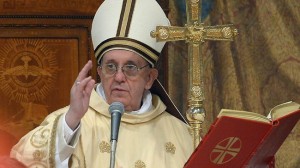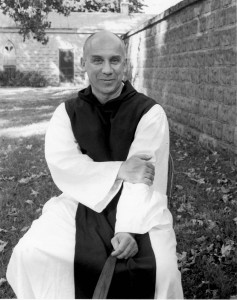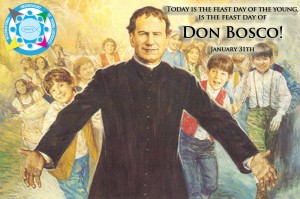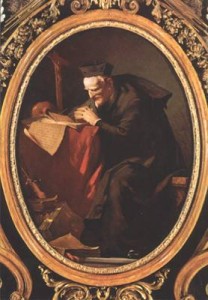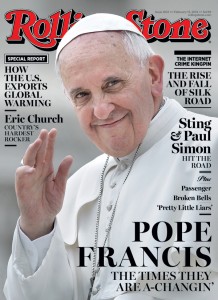Earlier today Pope Francis spoke to a large delegation from the University of Notre Dame. I think my alma mater can follow what the Pope is aiming at… don’t you think? In reading this address I am thinking and hoping that the UND does not explain away what the Pope really means.
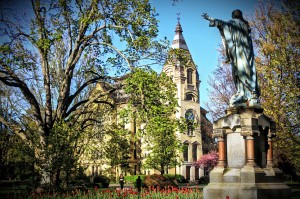 I am pleased to greet the Trustees of Notre Dame University on the occasion of your meeting in Rome, which coincides with the inauguration of the University’s Rome Center. I am confident that the new Center will contribute to the University’s mission by exposing students to the unique historical, cultural and spiritual riches of the Eternal City, and by opening their minds and hearts to the impressive continuity between the faith of Saints Peter and Paul, and the confessors and martyrs of every age, and the Catholic faith passed down to them in their families, schools and parishes. From its founding, Notre Dame University has made an outstanding contribution to the Church in your country through its commitment to the religious education of the young and to serious scholarship inspired by confidence in the harmony of faith and reason in the pursuit of truth and virtue. Conscious of the critical importance of this apostolate for the new evangelization, I express my gratitude for the commitment which Notre Dame University has shown over the years to supporting and strengthening Catholic elementary and secondary school education throughout the United States.
I am pleased to greet the Trustees of Notre Dame University on the occasion of your meeting in Rome, which coincides with the inauguration of the University’s Rome Center. I am confident that the new Center will contribute to the University’s mission by exposing students to the unique historical, cultural and spiritual riches of the Eternal City, and by opening their minds and hearts to the impressive continuity between the faith of Saints Peter and Paul, and the confessors and martyrs of every age, and the Catholic faith passed down to them in their families, schools and parishes. From its founding, Notre Dame University has made an outstanding contribution to the Church in your country through its commitment to the religious education of the young and to serious scholarship inspired by confidence in the harmony of faith and reason in the pursuit of truth and virtue. Conscious of the critical importance of this apostolate for the new evangelization, I express my gratitude for the commitment which Notre Dame University has shown over the years to supporting and strengthening Catholic elementary and secondary school education throughout the United States.
The vision which guided Father Edward Sorin and the first religious of the Congregation of Holy Cross in establishing the University of Notre Dame du Lac remains, in the changed circumstances of the twenty-first century, central to the University’s distinctive identity and its service to the Church and American society. In my Exhortation on the Joy of the Gospel, I stressed the missionary dimension of Christian discipleship, which needs to be evident in the lives of individuals and in the workings of each of the Church’s institutions. This commitment to “missionary discipleship” ought to be reflected in a special way in Catholic universities (cf. Evangelii Gaudium, 132-134), which by their very nature are committed to demonstrating the harmony of faith and reason and the relevance of the Christian message for a full and authentically human life. Essential in this regard is the uncompromising witness of Catholic universities to the Church’s moral teaching, and the defense of her freedom, precisely in and through her institutions, to uphold that teaching as authoritatively proclaimed by the magisterium of her pastors. It is my hope that the University of Notre Dame will continue to offer unambiguous testimony to this aspect of its foundational Catholic identity, especially in the face of efforts, from whatever quarter, to dilute that indispensable witness. And this is important: its identity, as it was intended from the beginning. To defend it, to preserve it and to advance it!
Dear friends, I ask you to pray for me as I strive to carry out the ministry which I have received in service to the Gospel, and I assure you of my prayers for you and for all associated with the educational mission of Notre Dame University. Upon you and your families, and in a particular way, upon the students, faculty and staff of this beloved University, I invoke the Lord’s gifts of wisdom, joy and peace, and cordially impart my Blessing.
 Today we honor Saint Agatha, an early virgin and martyr. She is remembered for her chastity, her desire for living for Jesus alone, and for her compassion. Saint Agatha is the patron saint for those living with breast cancer.
Today we honor Saint Agatha, an early virgin and martyr. She is remembered for her chastity, her desire for living for Jesus alone, and for her compassion. Saint Agatha is the patron saint for those living with breast cancer.